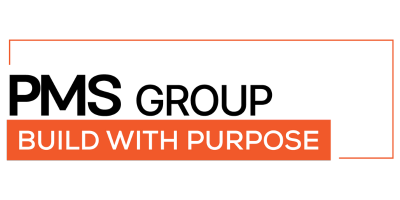Source: The Star (Article)

KUANTAN: Kuantan Port’s prospects are underpinned by projects such as Alliance Steel (M) Sdn Bhd’s second expansion phase, the establishment of a carbon capture and storage (CCS) hub with Petroliam Nasional Bhd (PETRONAS) and the East Coast Rail Link (ECRL).
Kuantan Port Consortium Sdn Bhd (KPC) chief financial officer Chan Weng Yew said Alliance Steel contributes about 30% to 40% of the port’s annual cargo throughput.
In 2024, Kuantan Port handled around 25 million tonnes of cargo, which is half of its full capacity of 50 million tonnes.
“Alliance Steel’s second expansion phase would be one of the main anchors for the port’s growth. The expansion will essentially double the size of their current facility.
“In terms of cargo throughput volume, Alliance Steel is currently generating between seven and nine million tonnes of cargo per year.
“With the expansion, these figures will increase to between 14 million tonnes and 18 million tonnes per year.
“Hence, this will give us an immediate step-up in volume,” he told the media at Kuantan Port’s headquarters yesterday.
In 2023, Alliance Steel announced its second phase of expansion, involving a US$1.8bil investment aimed at increasing its production capacity from four million tonnes per year to 7.5 million tonnes by 2026.
The steel producer is currently awaiting approval from the government for the products it plans to produce in the second phase of expansion.
Preparations for Phase 2, including the construction of necessary infrastructure, are underway.
Kuantan Port is managed by KPC.
IJM Corp Bhd holds a 60% equity interest in KPC, while the remaining 40% is owned by Beibu Gulf Holding (Hong Kong) Co Ltd.
Chan said Kuantan Port’s concession is divided into two parts.
The first part focuses on developing Phase 1 of the new deep-water terminal (NDWT), while the second part involves constructing Phase 2 of the NDWT.
The port has just completed about 10 years of its first concession, which runs until 2045.
Upon completion of Phase 2 of the NDWT, Kuantan Port will secure an additional 30-year extension, extending its concession period to 2075.
“The NDWT was designed with Alliance Steel’s needs in mind, so their expansion plays a crucial role in driving the terminal’s growth.
“The additional seven to nine million tonnes of cargo a year is very significant. It is about a 50% increase in cargo throughput for us.
“Currently, we handle over 20 million tonnes, and this expansion would result in a 30% to 40% increase in overall capacity,” he said.
Chan said the expansion of the NDWT needs to match the speed and progress of Alliance Steel’s factory expansion.
“If their factory comes up and the port is not ready, then there will be disruptions to the supply chain.
“Hence, we need to be a little bit ahead of them, so that when they are ready, the port is ready to serve their logistic needs,” he said.
Another growth catalyst for Kuantan Port is the establishment of a CCS hub with PETRONAS.
Last year, PETRONAS, through its subsidiary PETRONAS CCS Solutions Sdn Bhd, signed a land rental agreement with KPC to advance plans for its southern CCS hub in Pahang.
The hub is slated to begin initial operations by 2029 and aims to significantly reduce carbon emissions from hard-to-abate industries, both in Malaysia and internationally.
“The CCS project presents an attractive opportunity for Kuantan Port. For one, it will significantly boost cargo volume.
“More importantly, it supports the green agenda as PETRONAS will collect carbon emissions from overseas emitters, transport them to Malaysia, and process them here.
“The carbon will then be pumped into depleted oil wells located over 200km offshore.
“Kuantan Port is set to serve as both the base and receiving terminal for these CCS operations,” Chan said.
He said PETRONAS is in the design stage for the plant and is negotiating with its customers on the carbon capture methods.
“They have commercial terms to be agreed upon, along with the methods of capturing carbon, the logistical solutions including the types of vessels required to transport the carbon.
“There are a lot of things within this supply chain that need to be ironed out.
“The goal is to finalise all planning by around 2026, begin construction thereafter, complete the plant by 2028, and launch operations in 2029,” Chan said.
The upcoming commencement of the ECRL is also expected to influence demand for port services at Kuantan Port, potentially reshaping cargo flows and customer preferences.
Meanwhile, Hu Jiulin, the chief engineer and deputy general manager of Alliance Steel, said the company’s investment has turned Malaysia into an exporter of steel.
“Malaysia was an importer of steel. Since our investment, about 70% of our products are exported.
“This will help Malaysia transition from a steel-importing country to a steel-exporting country.
“We have a full-process H-beam production line, which is the only one in South-East Asia” he said.
